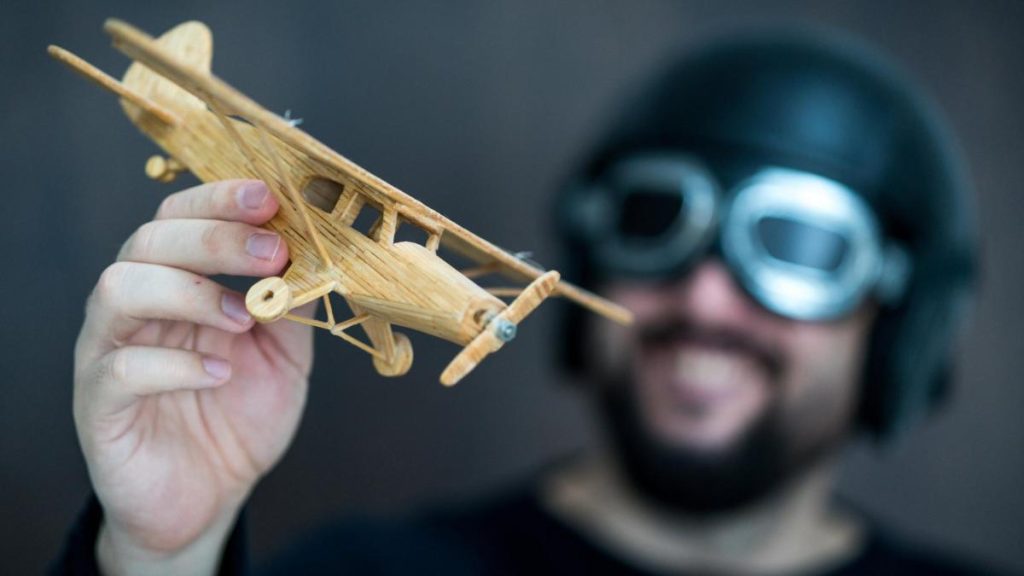
Overconfidence: why people think they can land a plane
nAfter watching a short video of the landing approach, people are becoming more and more convinced that they can land the plane themselves. This is the result of a psychological experiment conducted by New Zealand researchers. The researchers cannot say exactly why simply watching a four-minute video clip, which from the pilot’s point of view is completely unhelpful for learning to fly, leads to such overconfidence. They write that the small film may make it easier for people to see themselves in the role of a pilot, which then leads to an overestimation of their own abilities. In the “Open Science” journal of the British Royal Society.
Overconfidence isn’t necessarily a bad thing, according to researchers led by Marianne Jarry of the University of Waikato (New Zealand). A positive self-image, for example, can lead people to see the potential advantages of a job rather than its flaws, and then pursue it more actively.
Dunning Krueger Effect
In some people, overconfidence is deeply rooted in their personality. The so-called Dunning-Kruger effect has long been known. Describes how people overestimate their knowledge and abilities, especially when they know so little about something. They are simply unable to look realistically at themselves and their capabilities.
Survey results have shown that people can actually be remarkably wrong when it comes to assessing their own abilities – and their limitations. Men are especially susceptible to this. In one survey, more men than women believed they could defeat any animal in a fight, including bears, eagles, and king cobras, whose bites are usually fatal to humans.
According to studies, photos and videos can boost belief in one’s abilities, scientists continue. For example, students felt that they understood climate change better after reading text about it that was combined with an image—even if the image contained no information.
Gary’s team has now studied this effect in more detail. They asked nearly 800 testers to suddenly imagine that the only person on a small plane could land the plane because the pilot failed due to an emergency.
Then half of the test subjects watched a video from the cockpit, which was recorded from the perspective of a pilot during landing. He had no sound and the sight of the controls was largely obscured. An experienced pilot describes the video as “100 percent worthless” of learning a landing maneuver.
All the people were then asked a series of questions, including “How confident are you in being able to land the plane without dying?” and “How confident are you in your ability to land the plane in addition to the pilot?”. Participants were able to rate their own rating on a scale from “0 – not at all confident” to “100 – completely confident”.
Mission Impossible
Study leader Marianne Garry, who led the study, explains the trial setup: “The task that people are asked to do is almost impossible if they are not properly trained.” Any rating above 0 on the scale is basically like overconfidence – and many people gave up on the test. “In fact, both those in the group who watched the short and unhelpful video and those who weren’t overly confident on average,” says Gary.
But what the researchers were most interested in was the effect of the video. It turned out that this further worsened the overconfidence. The researchers estimated that actually false confidence in the group of video viewers was about 9 percent higher. This effect size is in the range that has also been shown in similar studies.
“The reality is that people are frequently exposed to skillful behavior,” says Gary. “We think a 9 percent shift after watching one short presentation is concerning.” It is very likely that overconfidence will increase with repeated viewing.
The video may stimulate the viewer’s imagination, making it easier for them to see themselves in the role of the pilot — along with his skills, scientists speculate. However, this association has not been proven. So far, it has also not been clear which aspects of the video increased the viewer’s self-confidence. The landing shown was smooth. A problematic maneuver may have led viewers to a different subjective evaluation. In addition, there were no specific instructions in the video – if the pilot explained step by step all the necessary procedures for complex maneuvering, this could also lead to a more realistic assessment.

“Coffee trailblazer. Social media ninja. Unapologetic web guru. Friendly music fan. Alcohol fanatic.”


